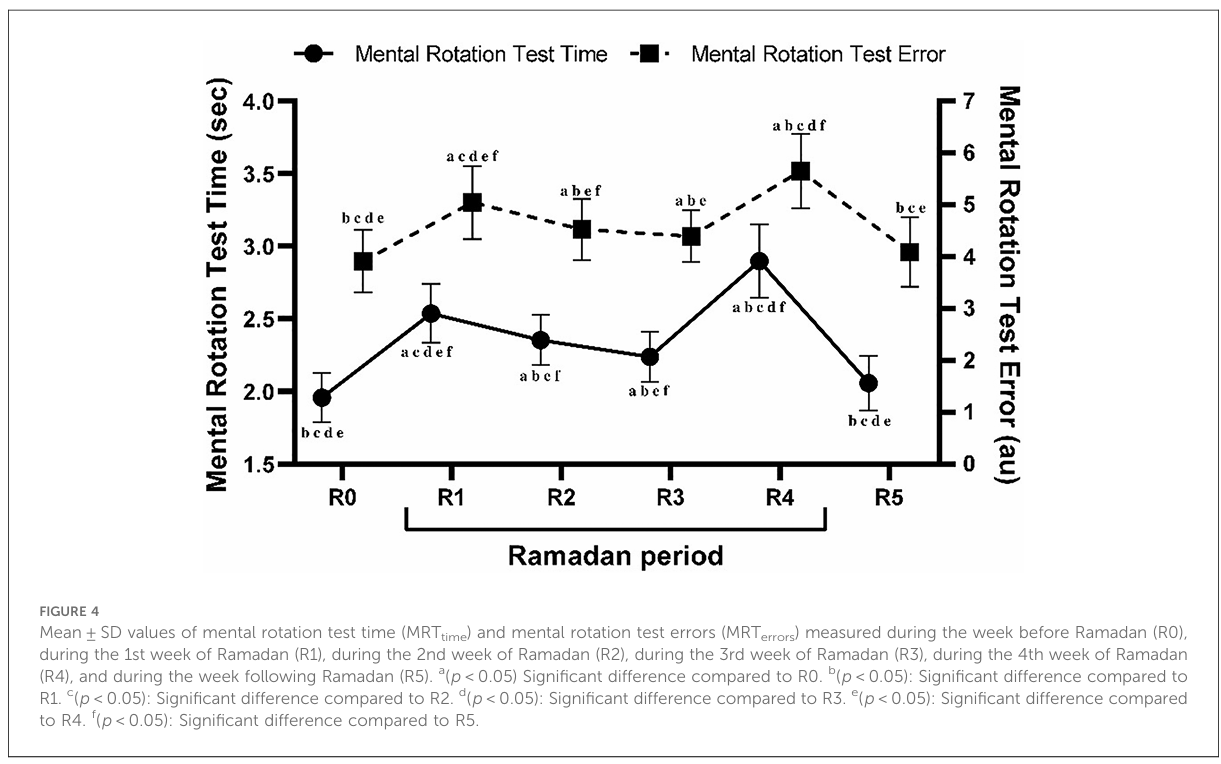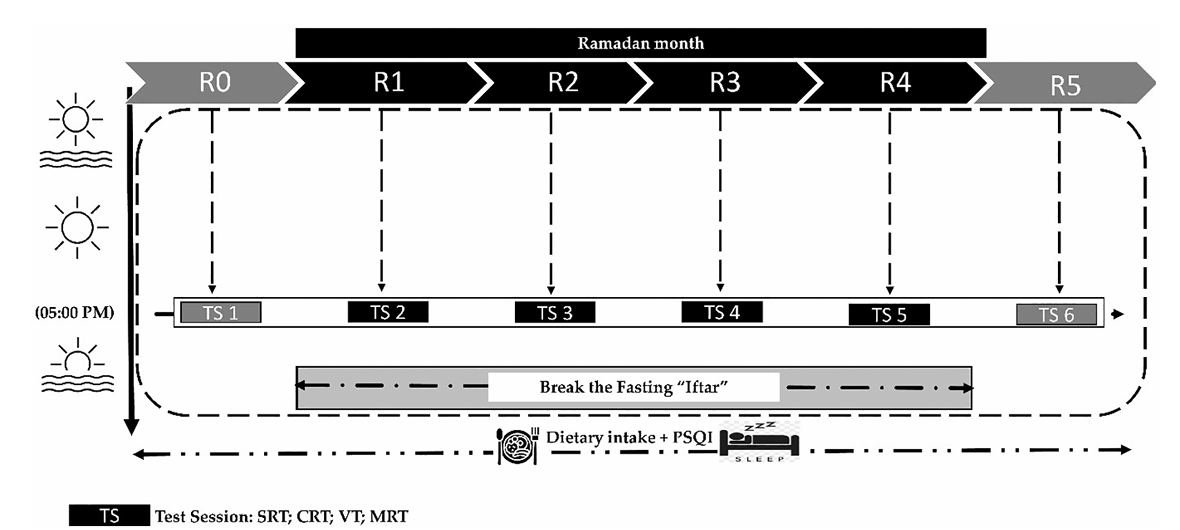|
The study by Houda Bougrine et al. on the impact of Ramadan intermittent fasting (RIF) on adolescent athletes reveals significant cognitive declines. During fasting, particularly in the first (R1), second (R2), and fourth (R4) weeks of Ramadan, Simple Reaction Time (SRT) and Choice Reaction Time (CRT) were notably slower compared to the baseline (R0), indicating impaired processing speed and reaction capability. Vigilance scores, measuring sustained attention, also dropped significantly, especially in the fourth week (R4). This suggests a reduced ability to maintain focus over extended periods.
|
|
|
Mental rotation times were longer throughout the fasting period, particularly during the fourth week (R4), indicating diminished spatial visualization abilities. These cognitive impairments are attributed to reduced glycogen stores and decreased blood glucose levels during fasting, which limit brain energy availability, leading to fatigue and decreased cognitive performance.
|
|
Given these findings, using assisted counters for prostrations during prayer can help mitigate the cognitive burden experienced during Ramadan. These devices can ensure accurate counting despite reduced vigilance and processing capabilities, thereby maintaining the integrity of the prayer practice. Assisted counters can be a practical solution to help individuals manage cognitive tasks that require precision, providing a valuable aid during the fasting period.
|


